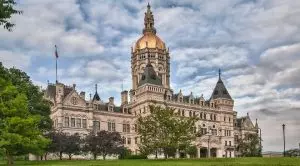 The US Court of Appeals ruled against MGM Resorts International in the first one in what is expected to be a long-running legal battle over the construction of a rival casino in East Windsor. Now, MGM Resorts has lost the first round of their legal battle against a third casino in Connecticut, with the federal court in New York has upheld an earlier ruling against the company.
The US Court of Appeals ruled against MGM Resorts International in the first one in what is expected to be a long-running legal battle over the construction of a rival casino in East Windsor. Now, MGM Resorts has lost the first round of their legal battle against a third casino in Connecticut, with the federal court in New York has upheld an earlier ruling against the company.
In 2016, MGM Resorts filed a lawsuit at the time when the legislature approved a bill giving the Mohegan and Mashantucket Indian tribes the green light to start a process of consideration for a new casino that would compete with Springfield-located property of MGM.
The two tribes were allowed to enter into development agreements with municipalities under the Special Act 15-7. On the other hand, MGM Resorts is already building a multi-million casino in Springfield, worth $950 million. The country’s development agreement there suspends it from constructing another casino within 50 miles of the new one in Springfield. In other words, MGM Resorts would not be permitted to build another gaming venue in most municipalities of Connecticut, except for the ones located in the south-western part of the state.
The US Court of Appeals accepted the argument of the state of Connecticut that the Special Act 15-7 does not suspend neither MGM, nor another company from initiating negotiations with municipalities over a potential gambling venue, because the 2015 act did not actually allowed the Indian tribes to build anything. Starting a construction process required a second law to be enacted.
Now, with the federal court ruling against MGM Resorts and the third casino getting the legislature’s approval, the company is expected to once again bring the matter to court. The company insists that the permission received by the above-mentioned Indian tribes to build a new casino in the state of Connecticut breaches the constitution. In addition, according to MGM Resorts there should be an open bidding process for such a construction to be made.
The casino and gaming operator also claims that the state could generate greater revenue and could increase the number of jobs by permitting a third casino to be built in Fairfield County, saying that such a gambling venue would be able to take advantage of the market of New York City.
As mentioned above, the two local Indian tribes, on the other hand, the Mohegan and Mashantucket tribes, have formed a joint venture working on a casino opening in East Windsor, located at approximately 15 miles from the Massachusetts border. Now, the two tribes could move forward with their plans under the piece of legislation that has been passed earlier in June by the General Assembly of Connecticut. They also have the support of the Bureau of Indian Affairs, but the piece of legislation known as Senate Bill 957 needs the signature of Governor Daniel P. Malloy in order to become law.
- Author


